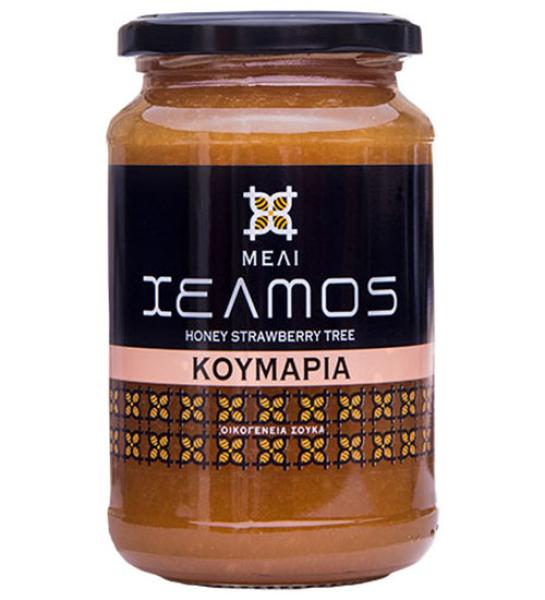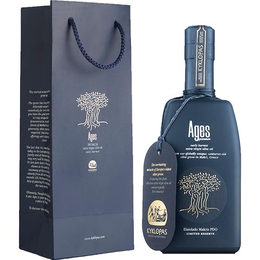Erdbeerbaumhonig
Erdbeerbaumhonig wird von der Familie Souka an den Hängen von Achaia produziert. Die Blütezeit des Erdbeerbaums beginnt im November, die Blüten geben bis ins späte Frühjahr Pollen und Nektar.
Geschmack: Er hat einen charakteristischen kräftigen, sehr vollmundigen subbitteren Geschmack mit aromatischen Noten von bitterem Karamell.
Nährwert: Es ist sehr reich an Spurenelementen und Vitaminen und ist eine der besten Möglichkeiten, den Körper zu stimulieren. Es wird als Diuretikum und Antiseptikum der Harnwege, sowie bei leichten Bronchialinfektionen verwendet. Der Kaloriengehalt von Erdbeerbaum-Honig ist aufgrund seines geringen Glukose- und Fruktosegehalts geringer als bei anderen Honigen und wird daher sowohl bei Diäten als auch für Typ-B-Diabetiker empfohlen.
Analyse des Bremer Bienenzuchtinstituts und der Firma Kraft in München:
0.0% Saccharose
36.1% Fruktose
28.9% Glucose
1.7% Maltose
19.5% Feuchtigkeit
pH ist 4.5.
Hauptmerkmale
Spezifizierungen
Dimensionen
The Helmos Beekeeping
Soukas family produces honey for more than half a century.
Grandpa Nikolaos placed the first beehive at his beloved mountain, Helmos .
He conveyed the same love to his son George, founder of "HELMOS BEEKEEPING" in Ano Lousos, Kalavrita.
The third generation continues the family’s tradition and produces 15 varieties of honey, Bio pollen, royal jelly, honey products, sesame bars and healing beeswax cream.
The importance of honey over the years
As it is said that honey never spoils and is immortal, it was the food of gods in antiquity. According to mythology, the Bee was the nurturer of the god Zeus, father of the gods, and honey was the food of the Olympian gods.
In Homer's Odyssey, honey is also called "melikraton"(meli-=honey), i.e. a mixture of honey and milk, which they drank as a fine drink.
Moreover, it is stated that honey came to Greece from Ancient Egypt. In fact, in the well-known city of Minoan civilization in Crete, called Phaistos, it is said that ceramic beehives from 3400 BC were found, while in Knossos, gold jewellery depicting two bees holding a honeycomb.
In Sparta, it is said that, while teenagers were trained as soldiers, they were transported to the mountains for a month, being fed exclusively with honey (honeymoon).
Systematic beekeeping is reported to have been applied in Greece since the 15th century AC.
Even today, honey is considered a nutritional treasure and is known, in addition to its full flavour, for its antibacterial and antifungal properties. It is said that honey enhances memory, is one of the best natural antitussives, helps treat dry skin, helps you sleep better, and in general, that the combination of all of its nutrients, contributes positively to the human body.































